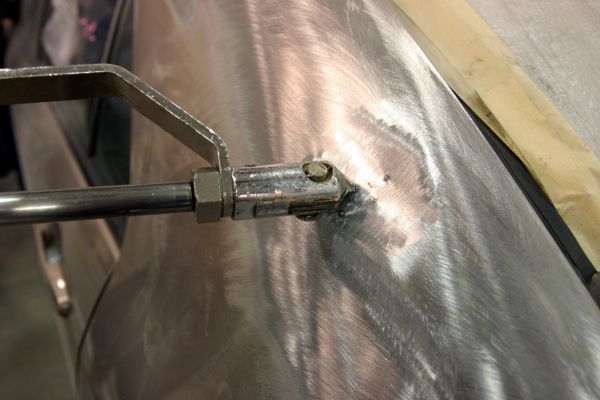When shopping for a vehicle, you’ve likely come across the term “certified pre-owned” or CPO. But what does it really mean, and how does it differ from a regular used car? In this comprehensive guide, certified pre-owned cars explained will be more than just a phrase—it will become a clear, informed choice for your next vehicle purchase.
Understanding the Concept of Certified Pre-Owned Cars
The automotive world is full of options, but certified pre-owned cars stand out as a unique category. Unlike standard used vehicles, these cars go through rigorous inspections and must meet strict criteria set by manufacturers or dealerships. This means you’re not just buying a used car; you’re investing in a vehicle that offers additional peace of mind, quality assurance, and often, warranty coverage that rivals new cars.
The term “certified pre-owned cars explained” becomes essential because it clarifies a concept that’s often misunderstood by car buyers. While all CPO programs share common goals—offering high-quality used cars—not every program is created equal. Manufacturers design these programs to attract buyers who want reliability without the hefty price tag of a new car.
The Difference Between Used and Certified Pre-Owned
It’s crucial to distinguish between a regular used car and a certified pre-owned vehicle. A used car can come from any previous owner, and its condition varies widely based on maintenance and history. There are no guarantees about its past accidents, mechanical issues, or potential hidden problems unless you independently check its history.
On the other hand, a certified pre-owned car has been thoroughly vetted. Automakers or authorized dealerships inspect the vehicle through a multi-point checklist, addressing everything from engine performance to interior features. These vehicles are typically newer models with lower mileage and a clean vehicle history report. Understanding these distinctions is key when looking for the best value for your money.
Why Buyers Are Drawn to Certified Pre-Owned Vehicles
One of the main attractions of certified pre-owned cars is their balance between cost and reliability. New cars often lose a significant portion of their value the moment they leave the dealership. CPO vehicles, however, offer substantial savings over brand-new models while still providing a sense of security.
Manufacturers back these vehicles with warranties, which often extend beyond the original coverage. Some even include perks like roadside assistance, free maintenance plans, or trial subscriptions to services like satellite radio. For buyers, these benefits create a safety net, ensuring that any unexpected repairs won’t come directly out of their pockets.
The Certification Process Demystified
To understand certified pre-owned cars explained in detail, it helps to look at what goes into certification. Typically, a vehicle must meet certain age and mileage requirements to qualify. Once it passes these initial filters, it undergoes a detailed inspection process.
Trained technicians check the car’s mechanical systems, body condition, tires, brakes, and even cosmetic details. Any part that doesn’t meet the manufacturer’s standards is repaired or replaced. Only after passing this comprehensive process does the vehicle earn its certified status.
This rigorous evaluation is what separates CPO cars from other used vehicles. Buyers can be confident that a certified pre-owned car has been meticulously maintained and brought up to a high standard before being resold.
Are Certified Pre-Owned Cars Worth It?
Many prospective buyers wonder if paying the premium for a CPO vehicle is justified. The answer often depends on your priorities. If peace of mind, warranty protection, and quality assurance are high on your list, a certified pre-owned car can be an excellent choice.
Although CPO vehicles cost more than regular used cars, the added benefits may save you money in the long run. You’re less likely to face expensive repairs immediately after purchase, and warranty coverage can further reduce financial risk. Additionally, some CPO programs offer attractive financing rates, making them more affordable over time.
What to Consider Before Buying
Before committing to a certified pre-owned vehicle, it’s essential to research the specific program offered by the automaker. Not all certifications are equal; some manufacturers have more robust programs than others. Investigate what’s included in the warranty, the duration of coverage, and any additional perks.
Also, consider the dealership’s reputation. While certification standards are typically set by the manufacturer, the execution depends on the dealer. Reading reviews and asking for a detailed inspection report can help ensure you’re making a smart investment.
The Future of Certified Pre-Owned Cars
The popularity of CPO programs continues to grow as more buyers look for alternatives to high-priced new vehicles. Automakers are expanding their certification standards to include hybrid and electric vehicles, recognizing the shift in consumer preferences. This evolution means that certified pre-owned cars are not just a trend but an integral part of the automotive market.
Final Thoughts on Certified Pre-Owned Cars
Navigating the car buying process can feel overwhelming, but understanding certified pre-owned cars explained makes it easier to make an informed decision. CPO vehicles bridge the gap between new and used cars, offering affordability, reliability, and peace of mind in one package.
If you’re seeking a balance between cost and confidence, a certified pre-owned car may be the perfect fit. With thorough inspections, extended warranties, and added benefits, CPO vehicles allow you to enjoy many of the perks of a new car without the steep price tag. In the end, they provide a smarter and safer route for today’s discerning car buyer.



